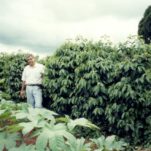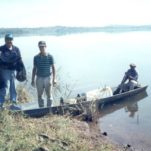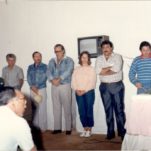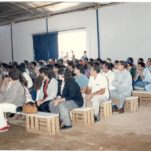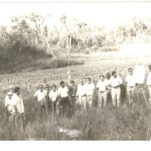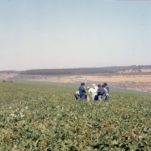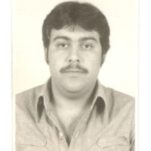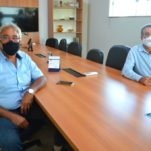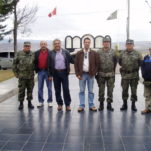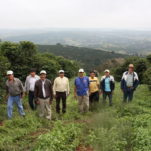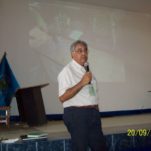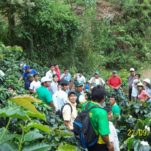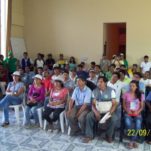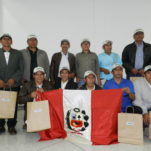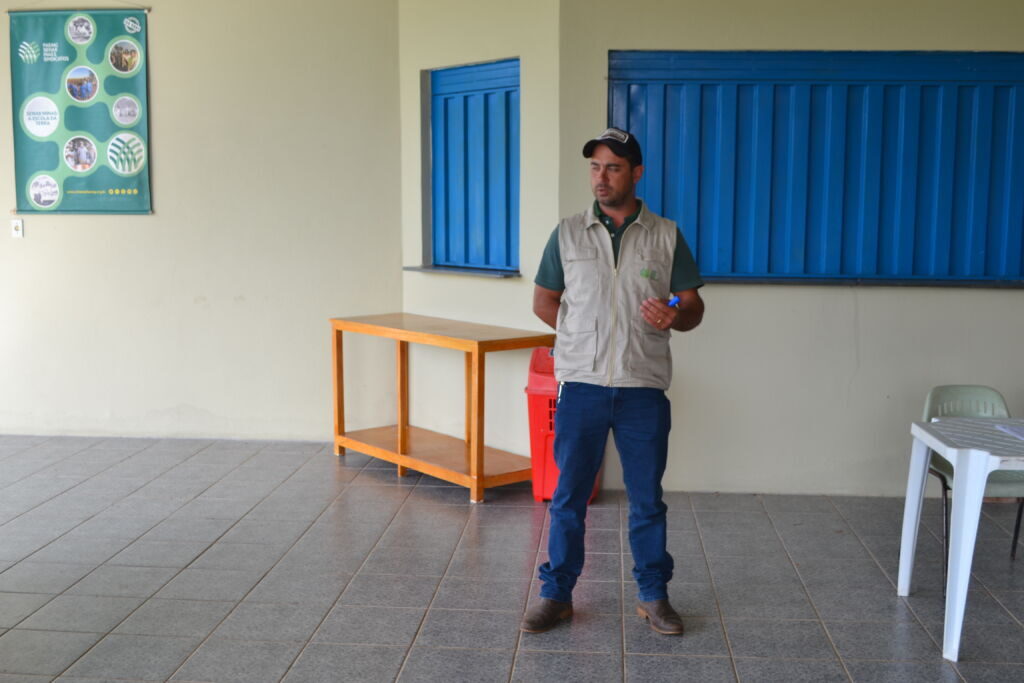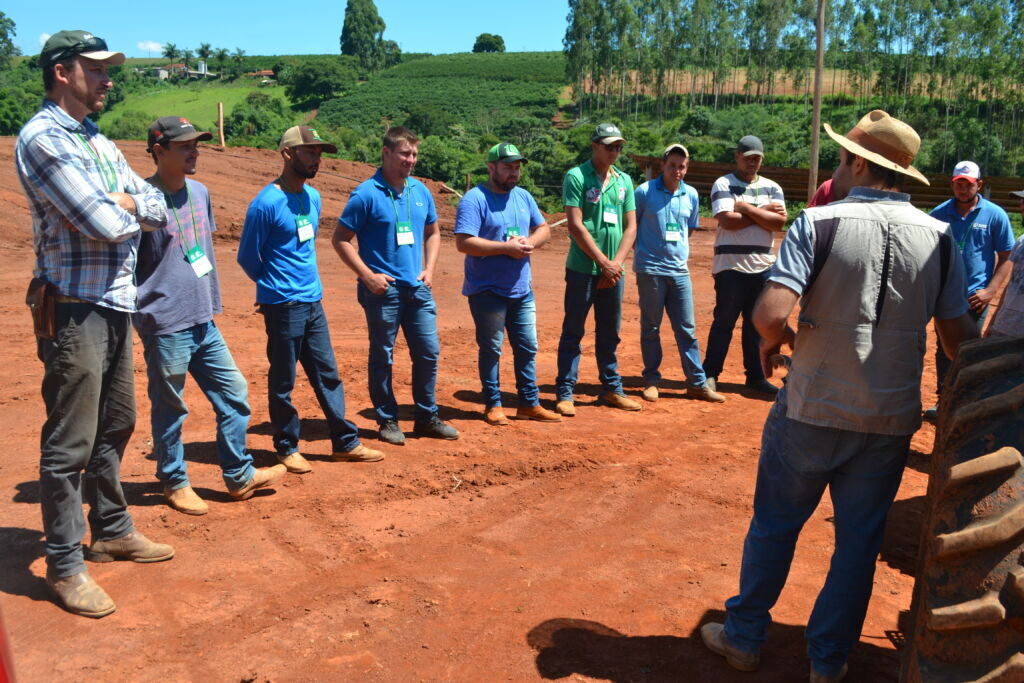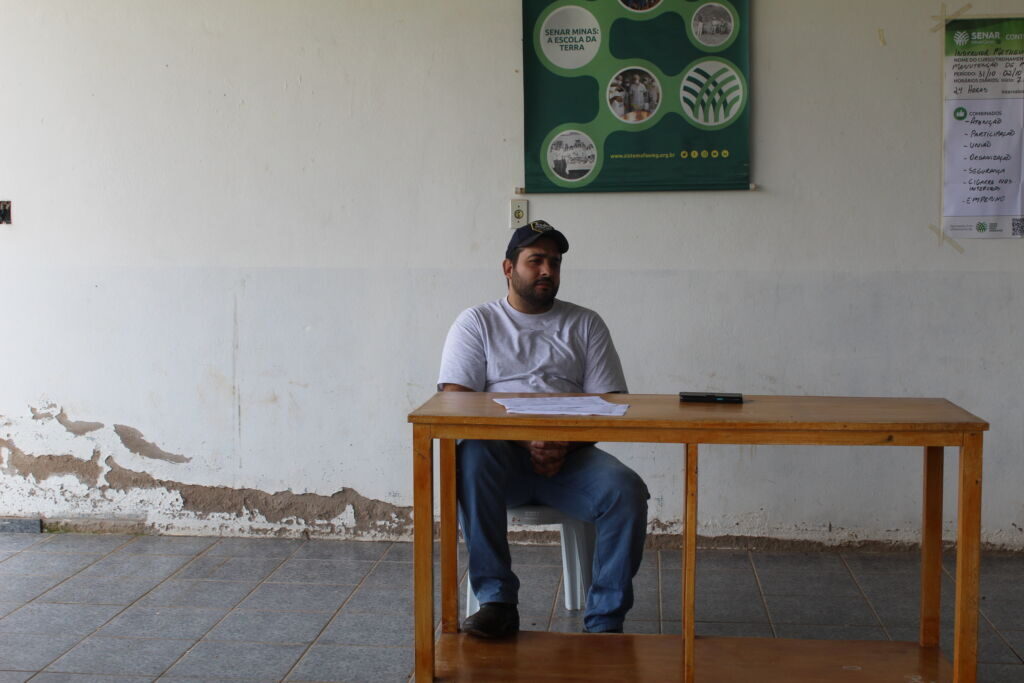In every edition we tell here the story of a member and his achievements. But in this edition we ask you readers for a license to honor a professional who for 40 years provided services to rural producers and was also a great partner of COOMAP: the agronomist from Emater’s office in Paraguaçu (EMATER is the abbreviation for Technical Assistance and Rural Extension Company from Minas Gerais State), Carlos Magno de Mesquita, who has just retired.
Carlos Magno de Mesquita was born on June 19th, 1956. Coincidentally, it is exactly the same date as Emater’s office in Paraguaçu was opened. And it was at Emater that that he dedicated himself to for the last four decades. “Emater was a partner who gave me everything, my family, my children’s education, friends, that is, the important contacts in my life. It was a great school. I realize it every day of my life. And I want this institution to go on for many, many years supporting rural people and rural development in our State”, he declared. Carlos Magno is married to Beatriz Camisão Boueri Mesquita and has two children: Lucas, 38, and Renan, 35, and two grandchildren.
The story
It was the morning of August 22nd, 1983 when the young agronomist Carlos Magno arrived in Paraguaçu, graduated from Esal – School of Agriculture of Lavras (today the Federal University of Lavras). He came with his wife Beatriz, who was an employee of a bank. In his luggage, Carlos brought his first experience of three years in Pavão, at the Emater regional office in Teófilo Otoni, in the northeast of Minas Gerais, where he began his career.
In Paraguaçu, at the beginning of the 1980s, producers made their living from corn, beans and rice, in addition to dairy cattle and coffee. “At that time, corn productivity was 2,000 kilos per hectare. The adoption of no-till farming was still in its infancy. And today, productivity jumped to 7,000 kilos. For that, we brought the very best in technology”, remembers Carlos. One of the important events was the “Milhor: The best if Corn”, held for some years by Fitovet and with the support of Emater.
Related to coffee, Carlos Magno remembers that production was still very amateur and producers did not have the vision of the market that they have today. “Emater played an important role in offering the technology for production,” he said. In 2010, he participated in the first technical visit to Peru, to advise coffee producers in that country. The 10-day international experience was in the area known as VRAE – Vale dos Rios Apurímac and Ene, where the spring of the Amazon River is located.
Carlos Magno also participated in the evolution of potato cultivation in Paraguaçu. The municipality hosted, together with Cambuquira, the II National Meeting of Potato Production and Supply in 1988, bringing together representatives of entities and technicians from various parts of the country. he filmed the potato production on VHS and improvised a circuit of televisions, those old ones, in the warehouse at Fazenda Oriente, to show the material. “After the exhibition, we went to the field to see the potato harvest. It was a success, very interesting and unforgettable!”, he recalls.
Over the past 40 years, Carlos Magno and the Emater team have provided assistance to producers of the most varied cultures. There was garlic, which nationally highlighted the municipality in the 1960s and was still planted in Chico dos Santos, Macuco and Fama in the 1980s. There was the project to protect micro-basins, the cultivation of cotton in Chico dos Santos, the dairy tournaments, fish farming in the Furnas dam and the planting of palm trees in the land at the end of Ferreira Prado Street, in Paraguaçu. And more recently, the past decade was marked by marolo, whose party is already in its 11th edition and was declared an Intangible Heritag of the Municipality.
Several of the agricultural crops also gained a column in the city’s newspaper. And agronomist Carlos Magno was the author. For some years, he insisted on writing the “Momento Agropecuário”, which remained for some years in the newspaper A Voz da Cidade. “Today we arrive at the producer and he often remembers what he has learned. And we had this good participation. It’s very gratifying”, he sums up.
Partnerships with COOMAP
“Emater and COOMAP have similar goals, such as the development of agribusiness and improving quality of life of rural producers. I had the pleasure of following the entire period of COOMAP’s greatest development and today we observe this period of strength. I hope that from now on it will grow even more”, declared Carlos Magno.
He remembers several projects in which Emater was the Cooperative’s right-hand man, such as the coffee growing field days. “COOMAP promoted the field day, placed an energy generator in the middle of the crop and each participating company had 20 minutes to talk to the producers”, recalls the sustainability manager of the Cooperative, Rogério Araújo Pereira. “We installed a slide projector in the middle of the crop, and that’s how we traveled through the communities”, remembers Carlos Magno.
COOMAP’s project to improve water quality of cooperative members also received fundamental support from Emater. After carrying out the microbiological analysis of the water on rural properties and verifying that the vast majority consumed water that was unfit for consumption, COOMAP approached to Emater in order to prepare a technical project. There were field days, technical demonstrations to residents, protection of springs, planting of native trees and finally COOMAP installed sand filters and also chlorinators in rural homes.
COOMAP is proud to have lived, for 40 years, with Carlos Magno de Mesquita – a dedicated professional and extremely involved with agriculture and the causes of rural producers. And congratulates him for the excellent service provided as an agronomist at Emater – our great work partner!
Report published in the COOMAP News Newsletter, issue 37. See the full issue by clicking here.

OLYMPUS DIGITAL CAMERA


